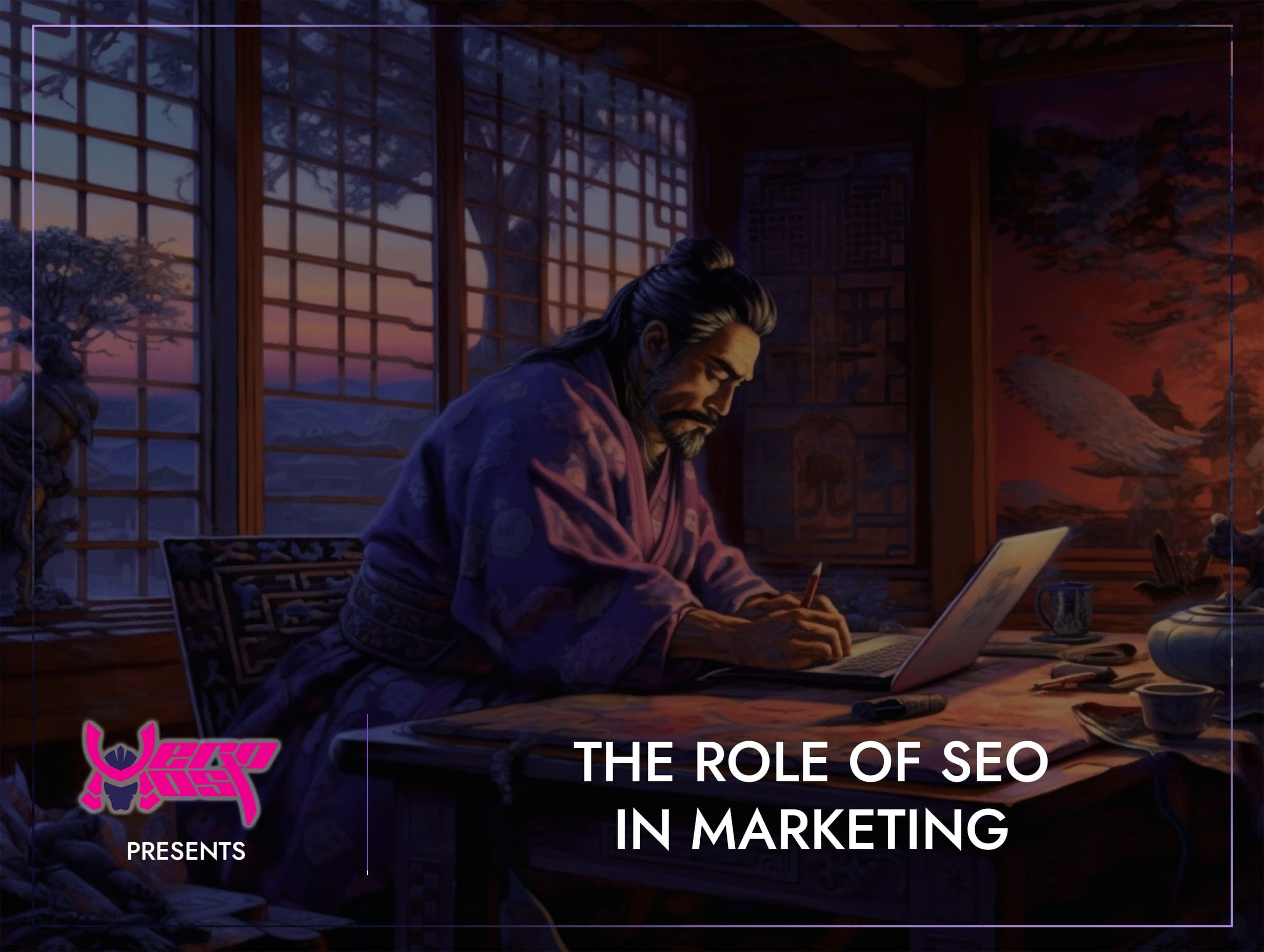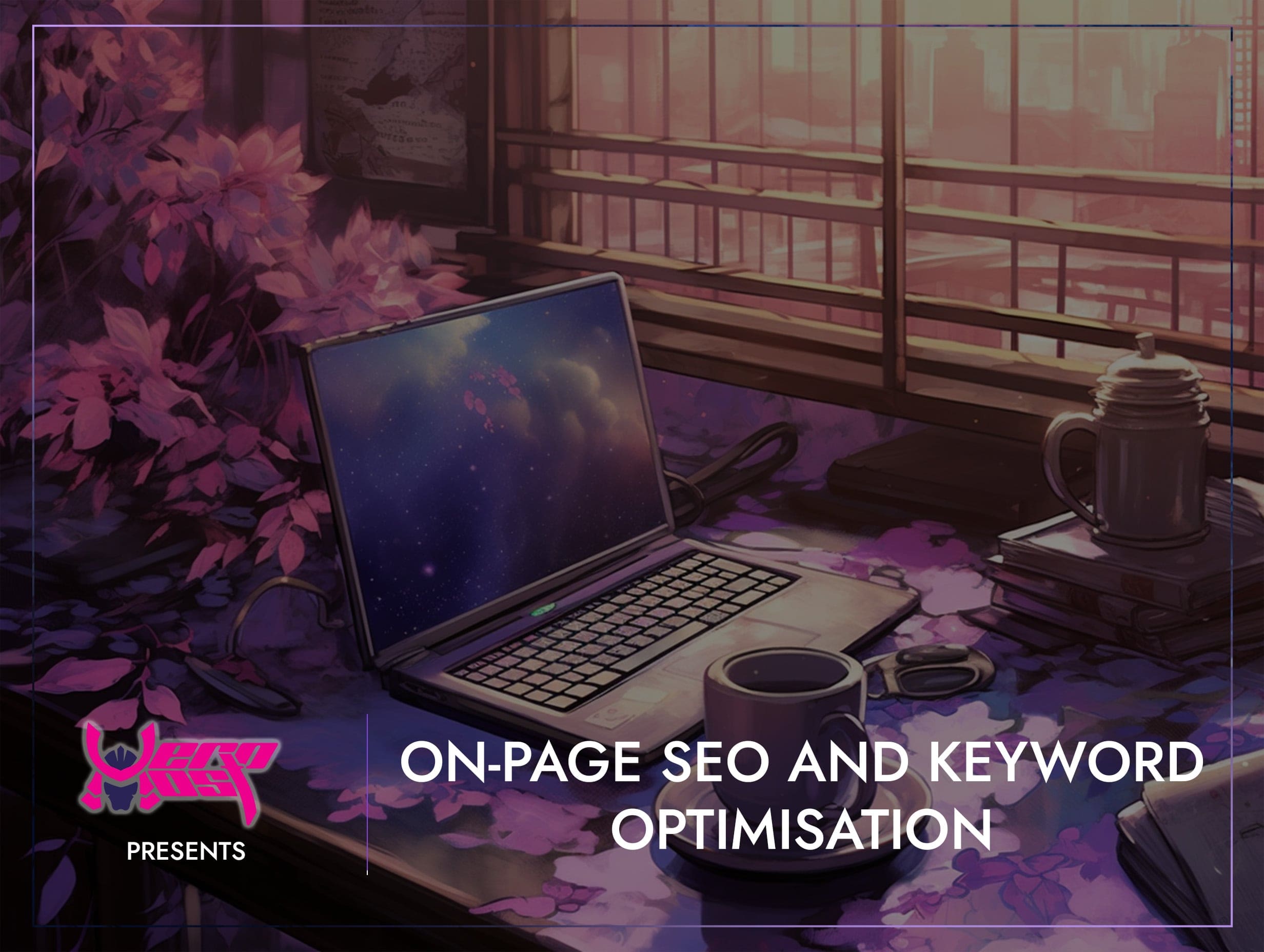The Role of SEO in Marketing
- Home
- Search Engine Optimisation (SEO)
- The Role of SEO in Marketing

- Mikey Ryu
- March 19, 2024
- 0
The Role of SEO in Marketing
The Role of SEO In Marketing
In the vast expanse of the digital landscape, where countless websites fight for attention, visibility is key. For businesses seeking to stand out amidst the noise and connect with their target audience, Search Engine Optimisation (SEO) emerges as a pivotal tool in their marketing arsenal. In this blog, we’ll delve into the multifaceted role of SEO in modern marketing, exploring how it maximises visibility, drives growth, and fosters long-term success.
Enhancing Online Visibility
At its core, SEO is all about visibility. In an era where consumers turn to search engines for answers, solutions, and recommendations, businesses must ensure that their online presence is easily discoverable. By optimising website content, structure, and performance to align with search engine algorithms, SEO enhances visibility on search engine results pages (SERPs), ensuring that businesses appear prominently when users search for relevant keywords. From local businesses aiming to attract nearby customers to global enterprises seeking to expand their reach, SEO empowers organisations of all sizes to enhance their online visibility and connect with their target audience.
Driving Organic Traffic
Beyond mere visibility, SEO serves as a powerful driver of organic traffic. Unlike paid advertising, which requires ongoing investment to maintain visibility, organic search traffic is sustainable and cost-effective in the long run. By crafting high-quality content, targeting relevant keywords, and earning backlinks from authoritative sources, businesses can attract qualified leads and customers without relying solely on paid channels. The continuous stream of organic traffic generated through effective SEO strategies not only reduces dependence on paid advertising but also fosters a steady influx of engaged users who are actively seeking the products or services offered by the business.
Building Brand Credibility
In today’s digitally-driven world, credibility is paramount. Users place their trust in brands that appear at the top of search engine results pages, viewing them as reputable and authoritative sources of information. By consistently ranking high in search results for relevant queries, businesses can establish themselves as industry leaders, garnering trust and credibility among their target audience. Furthermore, SEO encompasses various tactics, such as optimising for featured snippets and Google Knowledge Graph, which enhance a brand’s visibility and authority in its niche. Through strategic SEO efforts, businesses can solidify their brand’s credibility and position themselves as trusted authorities in their respective industries.
Facilitating Targeted Engagement
Effective marketing is not just about reaching a broad audience; it’s about engaging with the right audience at the right time with the right message. SEO facilitates targeted engagement by aligning with user intent and delivering highly relevant content to users based on their search queries. Through keyword research and content optimisation, businesses can tailor their messaging to address the specific needs, interests, and pain points of their target audience. By understanding the search intent behind user queries, businesses can create personalised experiences that resonate with users, driving engagement, and fostering meaningful connections that lead to conversions.
Measuring and Iterating for Continuous Improvement
In the dynamic world of digital marketing, success is not static; it’s an ongoing journey of measurement, analysis, and iteration. SEO provides a wealth of data and insights that enable businesses to measure the effectiveness of their marketing efforts and make data-driven decisions to optimise for better results. By monitoring key metrics such as organic traffic, keyword rankings, conversion rates, and user engagement, businesses can gain valuable insights into the performance of their SEO strategies and identify areas for improvement. Through continuous testing, experimentation, and refinement, businesses can refine their SEO approach, adapt to changing market dynamics, and stay ahead of the competition.
Conclusion
In conclusion, the role of SEO in marketing is multifaceted and far-reaching, encompassing everything from enhancing online visibility to driving targeted engagement and fostering brand credibility. By maximising visibility, driving organic traffic, and facilitating meaningful engagement with their target audience, businesses can leverage the power of SEO to achieve their marketing objectives and drive sustainable growth in the digital age. With a strategic approach to SEO, coupled with continuous measurement, analysis, and iteration, businesses can unlock the full potential of their online presence and thrive in an ever-evolving digital landscape.
Search
Categorys
- Branding (12)
- Business Growth Guides (3)
- Business Insights (3)
- Content Marketing (43)
- Domain Authority (19)
- Email Marketing (28)
- Google Analytics & Search Console (5)
- Hack or Not (2)
- Hero Host News (0)
- Inbound Marketing (32)
- Lessons From Asia (40)
- Marketing Guides (11)
- Martial Arts Journey (14)
- Outbound Marketing (8)
- Search Engine Optimisation (SEO) (41)
- Social Media Marketing (38)
- Web Design (20)
- Website Hosting (4)
- Wordpress (2)






